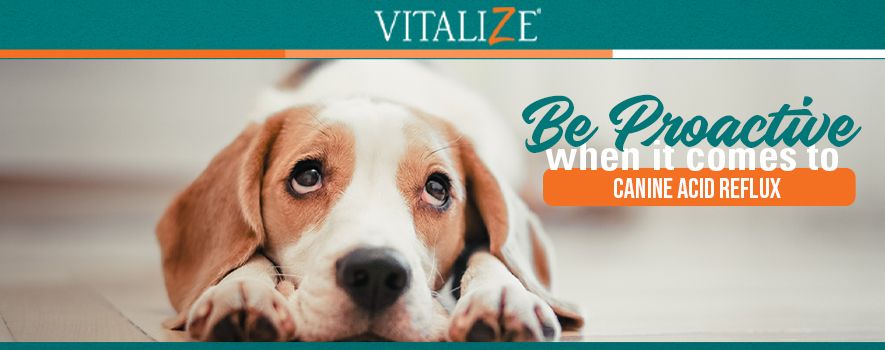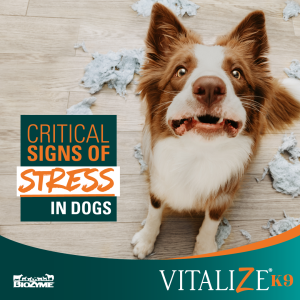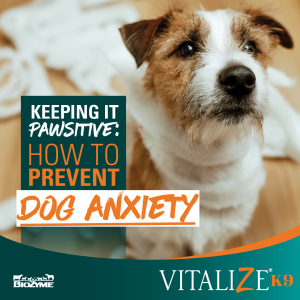
Many of us have experienced heartburn. Perhaps after overindulging at a family holiday potluck or eating way too many of Aunt Janet’s famous spicy meatballs. You are experiencing acid reflux, and, often, your next step might be reaching for the antacids.
Fortunately, we can identify and treat our own discomfort. However, our four-legged canine friends cannot. Acid reflux or gastroesophageal reflux disease (GERD) in dogs is a common occurrence. Acid reflux or GERD is caused when fluid comes up from the stomach and flows into the esophagus, the tube that leads to the mouth. Normally, these fluids would not be able to reach the esophagus because of a sphincter, or opening, at the base of the esophagus. However, in dogs with GERD, the sphincter muscle relaxes too much and allows the intestinal fluids to pass through.
How can you tell if your dog has acid reflux? There are several tell-tale symptoms, including, but not limited to:
- Empty or painful swallowing
- Appearing to lick the air
- Loss of appetite or weight loss
- Vomiting bile
- Eating grass or dirt
- General discomfort and lethargy
In severe cases, your dog may even vomit blood, a sign of esophageal ulceration.
While short term acid reflux in dogs is caused much like it is in humans – eating foods that are too rich or fatty – GERD is a long term, more chronic condition. If your dog is experiencing symptoms of GERD, there a few steps you may want to take to try to reduce them. One of the most convenient ways may be a slight change to the diet.
Dogs with GERD often do well on a low-fat diet. Feeding smaller, frequent meals can also help prevent excesses of acid from entering in the esophagus and causing discomfort. Regardless of your dog’s diet, you can always benefit from being proactive and supplementing a high-quality gastric health product. Vitalize® offers a great option with Alimend® K9.
Vitalize® Alimend® K9 is a product that supports gastric health and GI tissue in dogs prone to occasional gastric issues. It contains three key ingredients:
- MHB3® Hyaluronan, which coats the stomach and support the integrity of GI tissue.
- Amaferm®, a research-proven prebiotic to enhance digestion.
- Mushroom-derived beta glucans, which support the gut and immune systems.
Being proactive with a healthy diet and a gastric health regimen are just a few ways to help make sure your dog doesn’t suffer from occasional gastric issues. If you think your dog might have GERD or another chronic digestive issue, always make sure to take it to a licensed veterinarian for a thorough exam.
To learn more about the research-proven ingredients behind Vitalize and where to buy products, visit www.vitalizek9.com.

